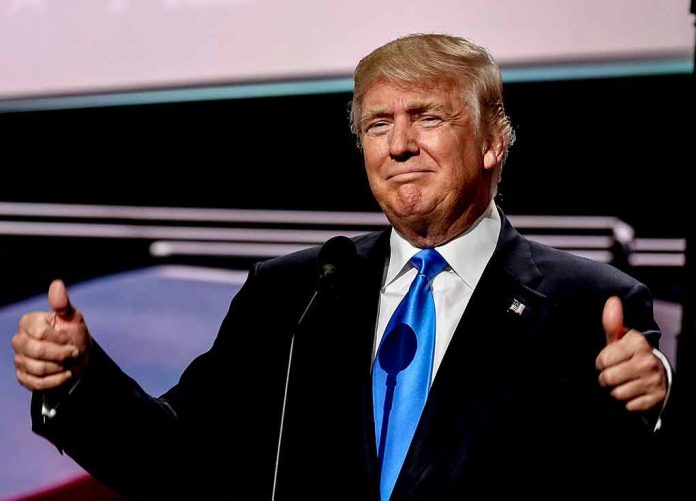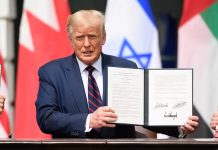
Donald Trump’s decisive electoral victory signals substantial implications for domestic and international political landscapes.
At a Glance
- Trump won the 2024 presidential election, securing critical states and both Electoral College and popular votes.
- Global leaders, including Israel’s Netanyahu, greeted Trump’s win, highlighting alliances and cooperation.
- Stock markets responded positively, reflecting potential economic optimism under Trump’s leadership.
- Trump plans significant domestic policy shifts, including immigration reforms.
A Resounding Electoral Success
Donald Trump secured a second term in the White House by defeating Kamala Harris in the 2024 presidential election. His victory included key battleground states, winning both the Electoral College and the popular vote. Such a decisive win marks Trump’s strong political comeback, offering new directions in U.S. domestic and global policy making. His focused campaign built on his promises resonated with voters, framing his next term’s agenda.
World leaders offered widespread congratulations, reflecting the election’s global significance. Israel’s Benjamin Netanyahu described Trump’s return as a “historic comeback,” further strengthening U.S.-Israeli ties. Emmanuel Macron of France expressed his readiness to collaborate with Trump towards increased peace and prosperity.
After media reported that republican candidate Donald Trump has declared victory in the US presidential election on Wednesday, the news has prompted wide reaction. Several world leaders, including Ukrainian President Volodymyr Zelensky, Israeli Prime Minister Benjamin Netanyahu… pic.twitter.com/zyIArCRxaQ
— Global Times (@globaltimesnews) November 6, 2024
Economic and International Reactions
Financial markets responded positively to Trump’s victory, with a rise in cryptocurrency, banks, and prison stocks. This market boost reflects a renewed confidence in potential economic policies under Trump’s administration. However, Barclays cautioned about possible market volatility, highlighting concerns about the long-term impacts of Trump’s presidency.
European leaders voiced a mixture of readiness and initial unease regarding Trump’s policies. Despite differences over various international matters, leaders like Macron and Germany’s Scholz expressed a willingness to work with Trump. This illustrates the cautious yet optimistic stance of the EU regarding the continuation of transatlantic relations.
Domestic Policy Shifts and International Dynamics
Domestically, Trump intends to implement significant changes, including initiating a “mass deportation” on his first day in office. This reflects his commitment to reshaping U.S. immigration policy. Meanwhile, international reaction varies, with some nations expressing hopes for continued partnerships. Leaders like India’s Narendra Modi and Hungary’s Viktor Orbán hailed Trump’s victory as a new beginning for democracy and international relations.
U.S.-Russia relations remain uncertain, with Russian officials showing mixed reactions, and President Putin yet to comment. In contrast, European leaders emphasize alliances and partnerships, setting the stage for potential shifts in geopolitical landscapes during Trump’s second term.














